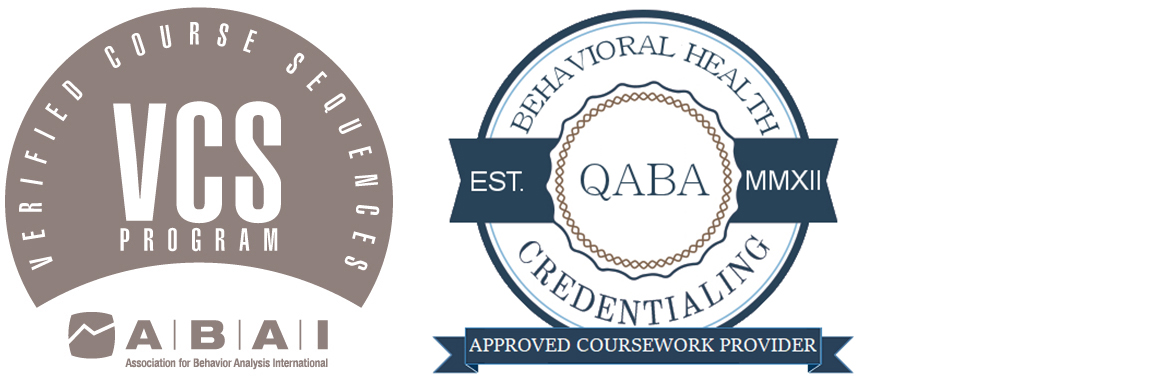Professional Organizations
Students should become familiar with these organizations and refer to them often.
The Behavior Analyst Certification Board is a nonprofit 501(c)(3) corporation that was established in 1998 to professional credential behavior analysts to “develop, promote, and implement an international certification program for behavior analyst practitioners.”
The BACB has developed:
- Eligibility Standards to take the BACB Certification Examinations
- Renewal and Recertification Standards to maintain certification
- Guidelines for Responsible Conduct for Behavior Analysts
- Professional Disciplinary Standards with appeal procedures
- A Certificant Registry
- A process to approve university course sequences and practicum
- Procedures to approve continuing education providers
- Professionally developed and maintained certification examinations.
The BACB website is useful for those pursuing certification, as well as those that are already certified.
For those pursuing certification, utilize their services to determine the following information:
- Behavior analysis course content requirements
- Types of MA degrees that are accepted
- Types of supervision available to applicants
- Appropriate clients and activities for experience
- Application links
- Ethical Guidelines and other guiding documents
- Newsletters containing increased standards or changes
Once certified, BCBAs and BCaBAs can utilize the website to:
- Track continuing education credits
- Reapply and pay for recertification
- Remain current on changes to standards and guidelines via newsletter archives
- Procedures to become an approved continuing education provider
The Association for Behavior Analysts International (ABAI) “contributes to the well-being of society by developing, enhancing, and supporting the growth and vitality of the science of behavior analysis through research, education, and practice.”
The ABAI publishes two academic journals, The Behavior Analyst and Behavior Analysis in Practice, as well as sponsors many conventions to include the annual national convention in the United States and International Conference every other year.
The ABAI promotes research and connecting with peers and mentors in specific areas of behavior analysis. Members consist of professionals and students of behavior analysis. Membership perks include discounts on conferences, books, and other items, as well as subscribes the member to the quarterly publication of The Behavior Analyst.
The Association for Professional Behavior Analysts (APBA) is a 501(c)(6) nonprofit organization created to “represent the interests of professional behavior analyst practitioners that are credentialed by the BACB”.
The APBA contributes resources and continuing education to professionals, as well as works with federal, state and third-party entities to support behavior analysts.
The organization publishes a monthly newsletter and holds an annual conference to facilitate continuing education to certificants. More impressive is the APBA’s role in providing an accurate representation of ABA to the general public and surrounding scientific community and actively responds to public policy decisions that affect practicing behavior analysts.
Membership includes professionals, consumers, and students of behavior analysis.
The Qualified Applied Behavior Analysis Credentialing Board (QABA®) is an internationally-accredited credentialing agency dedicated to ensuring the highest standard of care among professionals providing applied behavioral analysis (ABA) services for individuals with autism spectrum disorders and related disabilities.





